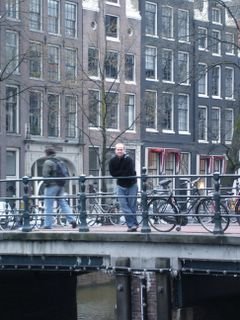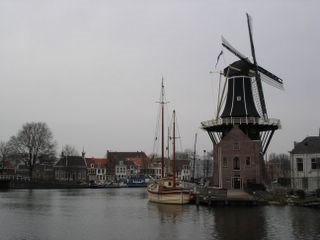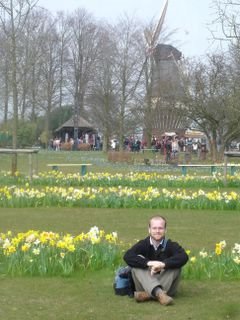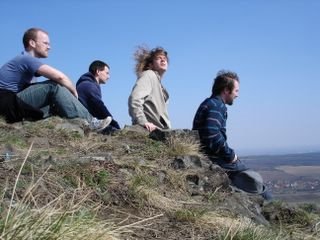Eggs and Whips, Alcohol and Witches
Velikonoce
As we move swiftly from the cold and gray to the green and sunny (its about flippin’ time) something deep inside the American psyche eagerly anticipates colored eggs, grilled burgers, and jelly beans by the pound. I’m sorry to say, friends, that such expectations take some different forms in my current country of residence: yes, Czechs color Easter eggs… but that is where the similarities stop.
First the basics. Easter in the 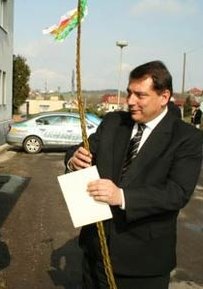 Easter (Velikonoce) festivities begin at sunrise. Boys and men of all ages rise quietly from their beds and reach for their Pomlazka… a 2 – 5 foot whip made of braided willow branches. Though most men hand-make their whips each year, they can also be purchased at reasonable prices in most city centers. With pomlazka in hand, the boys/men then beckon their wives, daughters, sisters and mothers from their beds as well. Tradition says that women who are whipped across the bottom on Easter morning will be healthier and more beautiful in the coming year. However, the woman can only be whipped while the man is singing/reciting a Easter poem. These poems are known by heart from a very young age, and most Czechs can recite them beginning to end in their sleep. Typically the poems last 20 seconds or so… but some of my students have reported that their dads will repeat poems a few times over for longer-lasting fun. Pictured is Jiri Paroubek, the current Czech Prime Minister, with his Pomlazka.
Easter (Velikonoce) festivities begin at sunrise. Boys and men of all ages rise quietly from their beds and reach for their Pomlazka… a 2 – 5 foot whip made of braided willow branches. Though most men hand-make their whips each year, they can also be purchased at reasonable prices in most city centers. With pomlazka in hand, the boys/men then beckon their wives, daughters, sisters and mothers from their beds as well. Tradition says that women who are whipped across the bottom on Easter morning will be healthier and more beautiful in the coming year. However, the woman can only be whipped while the man is singing/reciting a Easter poem. These poems are known by heart from a very young age, and most Czechs can recite them beginning to end in their sleep. Typically the poems last 20 seconds or so… but some of my students have reported that their dads will repeat poems a few times over for longer-lasting fun. Pictured is Jiri Paroubek, the current Czech Prime Minister, with his Pomlazka.
Within the home, the whipping is little more than a gentle, playful sort of ritual. However, once mom and sis have been tapped with the whip, the young men in the family leave the home in search of female neighbors, family members, and friends. The boys (4 – 18 years old… and occasionally older) ring the doorbell of their chosen target, are ushered in by the parents of the dreading female, and repeat the singing/whipping process with the new young lady… often with increasingly more force. Upon completion of the poem, young boys (12 and younger) are given colored eggs and sweets as a token of friendship and thanks. Older boys are given shots of alcohol. Remember, this all takes place between
Many of my female students are quick to point out that after noon, girls have the right to splash boys with water… as if this makes up for their newly acquired bruises. The vast majority of girls I’ve spoken with say that they hate Easter morning, but maintain that the tradition should be continued for tradition’s sake.
In the last two years, I have not witnessed this tradition with my own eyes… this year I was in
Čarodejnice
 Another big spring holiday is rapidly approaching which you should probably also know about. Čarodejnice is a holiday (un-official) which is celebrated on the last day of April every year. You may or may not remember me brielfy mentioning this holiday in a post last year, so I'll give you a refresher. At sundown, the Czech people gather at bonfires to celebrate the end of the cold months and the arrival of spring. These bonfires, ranging from small backyard barbecues to blazing wooden structures upwards of 10 feet high serve two purposes: first for roasting sausages and meat in various forms (I have neither the time nor the energy to get into Zabijecka, the pig killing event that takes place in the spring and fall in which all parts of the pig are eaten. Let's just leave it at: "Huh, that sounds interesting.") The second purpose of the bonfire is to serve as the base for the witch burning. An edifice of a witch, usually constructed of hay, sticks and old clothes are placed upon the fire at sundown.
Another big spring holiday is rapidly approaching which you should probably also know about. Čarodejnice is a holiday (un-official) which is celebrated on the last day of April every year. You may or may not remember me brielfy mentioning this holiday in a post last year, so I'll give you a refresher. At sundown, the Czech people gather at bonfires to celebrate the end of the cold months and the arrival of spring. These bonfires, ranging from small backyard barbecues to blazing wooden structures upwards of 10 feet high serve two purposes: first for roasting sausages and meat in various forms (I have neither the time nor the energy to get into Zabijecka, the pig killing event that takes place in the spring and fall in which all parts of the pig are eaten. Let's just leave it at: "Huh, that sounds interesting.") The second purpose of the bonfire is to serve as the base for the witch burning. An edifice of a witch, usually constructed of hay, sticks and old clothes are placed upon the fire at sundown.
I'm fairly certain that this tradition stems from a pagan ritual of old... a number of students and friends have more or less passed this information along. However, nearly all of my students see this tradition as simply a seasonal transition and an excuse to drink and eat grilled meat. The nest day (May 1st) is Labor day, so sleeping in and recovering from the night's festivities is no problem.
Svatek Prace
During communism, Labor Day was a government-sponsored holiday "in honor of the worker." Schools, factories, and businesses were all closed, but everyone was basically required to attend city parades celebrating communism. Those individuals who did not attend the parades were black-listed, as were their families for generations to come. I have one adult student who wasn't able to attend university simply because her grandfather had been unwilling to take his family to such an event. Had communism not come to an end, this student was certain that her children would have had similar limitations.
Nowadays, Labor Day is still a national holiday in which people are given a day off. There are no longer any annual traditions that I am aware of. People tend to spend the day with their families... as it should be, I think.
Interestingly enough, May 1st is also the Czech "Day of Love." Tradition says that young men should kiss their respective young ladies under a blossoming tree. Those women who are kissed will be (again) healthier and more beautiful because of it. Apart from the kissing, this day also serves as a Czech version of Valentine's Day, minus the greeting cards. Quite the transition between the Day of Love and Easter, eh?
I don't know how many of you are still reading, but I appreciate you getting this far. I hope you and your families had a great Easter, and that the weather outside your window is warm and sunny. I'll talk to you soon.




